FEAR
OF
Food
A HISTORY OF
Why We Worry about What We Eat
Harvey Levenstein
The University of Chicago Press
CHICAGO AND LONDON
HARVEY LEVENSTEIN is professor emeritus of history at McMaster University in Hamilton, Ontario. He has published a number of books on American history, including Revolution at the Table: The Transformation of the American Diet and Paradox of Plenty: A Social History of Eating in Modern America.
The University of Chicago Press, Chicago 60637
The University of Chicago Press, Ltd., London
2012 by The University of Chicago
All rights reserved. Published 2012.
Printed in the United States of America
21 20 19 18 17 16 15 14 13 12 1 2 3 4 5
ISBN-13: 978-0-226-47374-1 (cloth)
ISBN-10: 0-226-47374-0 (cloth)
ISBN-13: 978-0-226-47373-4 (e-book)
Library of Congress Cataloging-in-Publication Data
Levenstein, Harvey A.,1938
Fear of food: a history of why we worry about what we eat /
Harvey Levenstein.
p. cm.
Includes bibliographical references and index.
ISBN-13: 978-0-226-47374-1 (cloth: alkaline paper)
ISBN-10: 0-226-47374-0 (cloth: alkaline paper) 1. FoodUnited StatesPsychological aspects. 2. NutritionUnited StatesPsychological aspects. 3. DietUnited States. 4. Food preferencesUnited States. 5. Eating disordersUnited States. 6. PhobiasUnited States. I. Title.
TX360.U6L47 2012
 This paper meets the requirements of ANSI/NISO Z39.48-1992 (Permanence of Paper).
This paper meets the requirements of ANSI/NISO Z39.48-1992 (Permanence of Paper).
Preface
The willingness to eat not for pleasure but for health is doubtless due to a fundamental U.S. trait: the fear of being sickly. Perhaps in England, but certainly not in France or Spain or Germany or Russia, will you find people so anxious to believe that by eating a certain way they can achieve a life buoyant and vigorous. Here it is the gourmet who is the curiosity, the dietitian who is the prophet.
Fortune, May 1936
Meanwhile, the American psychologist Paul Rozin and the French sociologist Claude Fischler were doing cross-national surveys of attitudes toward food that highlighted how different Americans were from Europeans in this regard. One survey showed that the French and Americans were at opposite ends of the spectrum on the scale of food fears. For instance, when asked what came to mind at the mention of whipped cream and chocolate, the French tended to respond with thoughts of pleasure, while Americans replied with words such as guilt or unhealthy. This prompted Rozin to observe, There is a sense among many Americans that food is as much a poison as it is a nutrient, and that eating is almost as dangerous as not eating. A later survey, co-directed by Fischler, reinforced this. It showed Americans to be more apprehensive and feel guiltier about food than people in France and four other European nations. The contrast was especially marked with the French, who tended to regard eating as a social, rather than an individual, actthat is, as a convivial pleasure. Americans, on the other hand, were plagued by a sense
All of this spurred me to reexamine why Americans, who for much of the twentieth century regarded themselves as the best-fed people in the world, had become this way. I say reexamine, because in 1993 I concluded Paradox of Plenty, the second of my two histories of modern American food, with a reference to the paradox of a people surrounded by abundance who are unable to enjoy it. However, the main thrust of that book and its predecessor, Revolution at the Table, was to examine the wide range of forces that have shaped American food habits since about 1880. Fear of food played but a minor role in those works. In this book, I have used some of the topics mentioned in them, such as the various attempts to clean up the food supply and to combat the effects of large-scale processing, as jumping-off points for further research into how these contributed to Americans anxieties about food. This has allowed me to look at topics such as the campaigns for pure and natural foods, Vitamania, and fear of saturated fat from a perspective that is different from other studies, including mine. The result, I hope, is a book that will appeal to readers interested in how Americans current relationships to food developed over time. I hope as well that it might serve as an antidote to much of the current fearmongering about food. If it can help lessen even a few peoples anxieties and increase the pleasure they get from eating, I will regard it as a success.
I must once again thank my wife, Mona, for being what the old radio comedian used to call my boon companion and severest critic. As with my previous books, she went over the drafts of the manuscript with a sharp yet sympathetic eye, making many useful suggestions for revision. My friend Claude Fischler of the Centre national de la recherche scientifique (CNRS) in Paris read much of the manuscript from the perspective of a social scientist, while my molecular biologist friend Jack Pasternak, professor emeritus at the University of Waterloo, provided the perspective of a real scientist. Dr. Donald Rosenthal, professor emeritus at Mc-Master Universitys Michael G. DeGroote School of Medicine, helped reinforce my skepticism about the confidence with which medical wisdom is often dispensed and vetted parts of the manuscript for medical errors. Professor Paul Rozin of the University of Pennsylvania read the completed manuscript for the publisher and made a number of useful suggestions that I have tried to incorporate. As usual, Doug Mitchell, my editor at the University of Chicago Press, was very supportive in helping the manuscript over the various hurdles. Of course, its message about enjoying food went down well with such a dedicated bec fin, who allows no fears to impede his appreciation of the pleasures of the table. His aide-de-camp, Tim McGovern, was, as always, super-competent at helping to get the manuscript into publishable shape.
Parts of this book are based on the lectures I gave in 2009 at the annual Joanne Goodman Lecture Series of the University of Western Ontario in London, Ontario. The Joanne Goodman Lecture Series was established by Joannes family and friends to perpetuate the memory of her blithe spirit, her quest for knowledge, and the rewarding years she spent at the University of Western Ontario.
Hamilton, Ontario, Canada
January 2011
Introduction
At the root of our anxiety about food lies something that is common to all humanswhat Paul Rozin has called the omnivores dilemma. In recent years the ways in which industrialization and globalization have completely transformed how the food we eat is grown, shipped, processed, and sold have helped ratchet up these fears much further.
As a glance at a web page exposing urban legends will indicate, there are an amazing number of bizarre fears about our food supply (often involving Coca-Cola) always floating about. These might provide some insight into the nature of conspiracy theories, but they are not the kind of fear this book is about. What interests me are fears that have had the backing of the nations most eminent scientific, medical, and governmental authorities. One of the protagonists in this book won the Nobel Prize; another thought he should have won it. Many of the others were the most eminent nutritional scientists of their time. The government agencies involved were staffed by experts at the top of their fields. Yet, as we shall see, many of the fears they stoked turned out to be either groundless or at best unduly exaggerated. Others involved frightening all Americans about things that should concern only a minority.
Next page
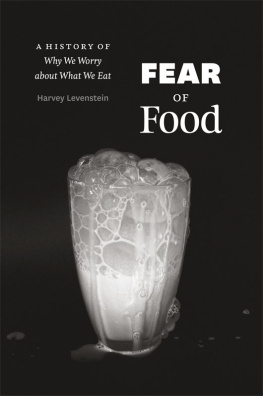

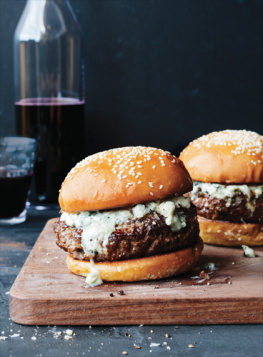


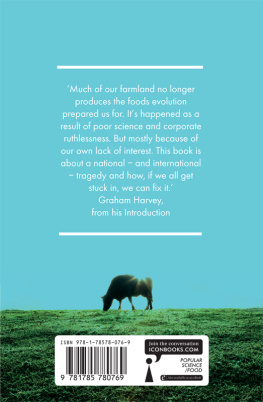
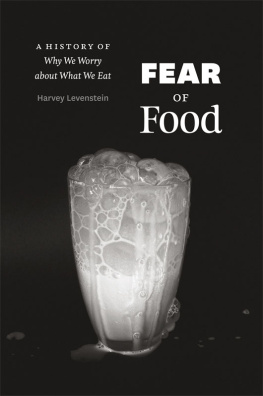
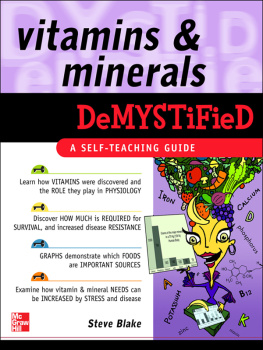

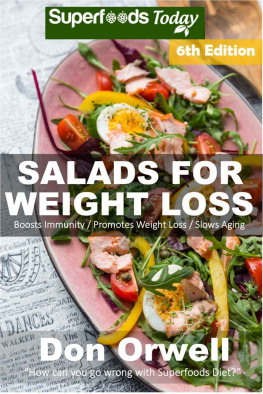
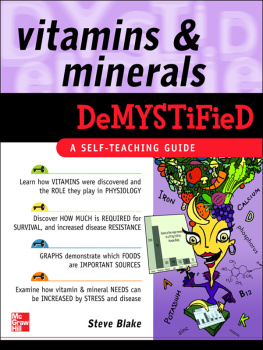
 This paper meets the requirements of ANSI/NISO Z39.48-1992 (Permanence of Paper).
This paper meets the requirements of ANSI/NISO Z39.48-1992 (Permanence of Paper).